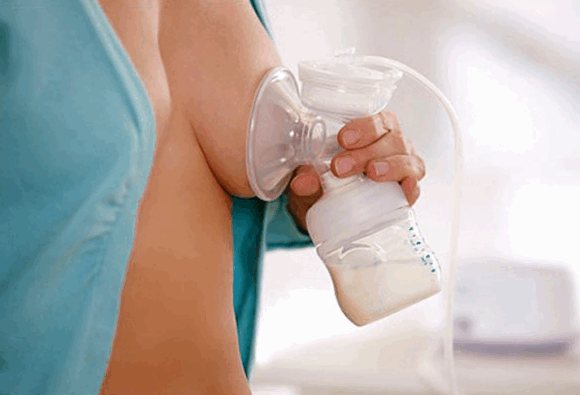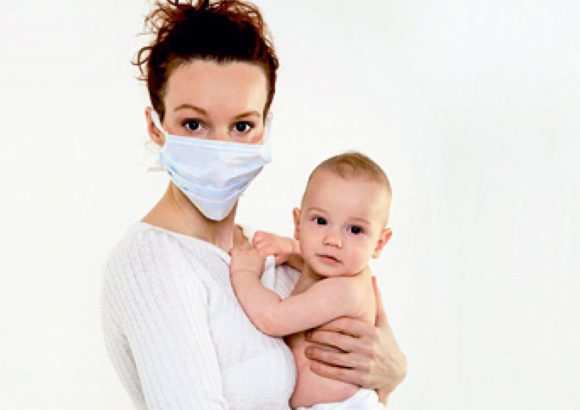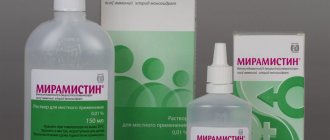Symptoms such as a runny nose, sore throat, general malaise and fever are common during the off-season. Treatment of a common cold is not difficult, but everything changes when it comes to treating colds in women during the lactation period.
Deterioration of the condition due to a respiratory viral infection is an additional burden on the female body, which is responsible for ensuring the life of a newborn child. Very often, breastfeeding women are interested in the safety of breastfeeding during colds.
Treatment
Previously, a sick parent was separated from her child and forbidden to feed him milk. But it is now known that mothers cannot stop lactation. With mother's milk, the baby receives all the necessary substances. Even if mom can infect him, the cold will go away easily.
Things to remember
Previously, a woman had to be careful during a cold and choose the right remedies. Now there is no urgent need for this, since they have begun to produce safe medications for colds. But you don’t need to relax anyway: if your mother is sick, she needs to be properly treated. You should also try not to infect the baby.
Forbidden:
- take unfamiliar drugs. First you need to make sure they are safe;
- prescribe medications and treat yourself without consulting a doctor. This is especially true for high temperatures;
- not following the correct dosage;
- Stop feeding your baby completely.
If a young mother is sick, the baby should also be fed milk carefully. The drugs reach high concentrations two hours after administration. A small portion of these medications are passed through breast milk. It is better to plan treatment and feeding in advance, or pump.

It is much easier if the baby is already given complementary foods. Then you can increase the time by 3-4 hours. During a cold, there are no special prohibitions on medications, but it is still important to be careful:
- You should be careful when using medications containing aspirin. If there is too much acetylsalicylic acid, it can interfere with the functioning of the baby’s and mother’s organs;
- medicines based on bromhexine are good for treating cough, but a nursing mother should not take them;
- Analgesics are prohibited because they negatively affect the functioning of the baby’s nervous system;
- before you start treating yourself, you need to become familiar with the dosage, as well as the rules for taking medications;
- If your mother is sick, you need to contact your pediatrician. He will tell you ways to prevent colds in your baby. He will also tell you what to do if the baby is still infected;
- if the baby is prone to allergies, the mother is allowed to use antihistamines.
Sometimes the mother's condition worsens. ARVI is especially dangerous when breastfeeding.

You have to use products that are prohibited during breastfeeding. In this case, it is advised to express milk every 3-4 hours. But there is no need to stop feeding your baby milk. Don't be afraid to infect him.
Is it possible to feed
From a safety point of view, a respiratory viral infection is not an obstacle to natural feeding of a newborn baby. In response to a viral infection entering the female body, there is an increased production of immune complexes to the causative agent of the disease.
These immune factors pass into breast milk in a short period of time, and with it into the baby’s body. Thus, the child is under reliable protection of maternal immunity. In addition, any breaks in breastfeeding are undesirable for the child, since the baby’s body ceases to receive valuable components that ensure the growth and development of the body.
Taking into account the immature immunity of a newborn child, a young mother must follow preventive measures that will protect the child’s body from close contact with pathogens of infectious pathologies. Such measures include:
- During feeding, a woman needs to wear a cellulose or gauze protective bandage that covers the mouth and nose area. This bandage can protect against the spread of infection for 2.5 hours, so it should be changed when it expires;
- Before each contact with the baby, a sick mother should wash her hands with soap;
- In the living area, and especially in the children's room, daily wet cleaning is performed. Ventilation twice a day (morning and evening) is also useful. The duration of this procedure does not exceed 15 minutes.

Before the room is ventilated, the newborn is taken to another room. If these rules are followed, the baby is at minimal risk of contracting a respiratory viral infection from a sick mother.
What can you take
There are many prohibited drugs during lactation, so it is better to familiarize yourself with those that are not prohibited from taking. It is better to immediately have a list of the necessary medications at hand. If a mother is sick, it will be easier for her to choose treatment for herself. At the same time, care should be taken not to infect the baby. But if the situation is critical, only consulting a doctor will help.
Drugs that are allowed to treat colds while breastfeeding:
- If your mother only has a runny nose, you can try Naphthyzin, Tizin, and other analogues.
- For coughs, you can take Ambroxol, as well as a herbal elixir. Doctors do not prohibit plant extracts, for example, licorice root. Doctors recommend anise drops.
- During a severe runny nose, you can take Pinosol drops. They are created on the basis of plant extracts, so they do not cause harm. At the same time, they also have an antimicrobial effect.
- If your mother has only the first signs of a cold, Aquamaris will help. They should irrigate and wash out the nasal passages. It can also be used for a child. To avoid infecting the child, you need to use only drops, not a spray.
- Gargling with furatsilin will help get rid of severe sore throat.
- A cold during breastfeeding is dangerous if the mother has a fever. In this case, Paracetamol can be used, but to a limited extent. Doctors recommend Nurofen, but only if the baby is over 3 months old. The remedies will help get rid of headaches and weakness.
- Oscillococcinum treats colds well.
The first signs of the disease during hepatitis B
Infection with such diseases most often occurs through the upper respiratory tract, which in a young mother is already overloaded, because milk production requires a large amount of oxygen. Therefore, at the first signs of viral respiratory infections, a woman should take measures aimed at her speedy recovery. The first symptoms of a cold are :
- severe weakness;
- rapid fatigue;
- tinnitus or tinnitus;
- runny nose;
- pain and sore throat;
- elevated temperature;
- cough, sneezing.
A common cold usually lasts no more than 10 days, but if treatment is not started in time, the situation can worsen and provoke the occurrence of more serious diseases.
Attention! At the first signs of the disease, you should not thoughtlessly start taking any medications. Many of them are prohibited during breastfeeding and can harm the health of the mother and her baby.
Should I breastfeed if I have herpes on my lip?
Often, during lactation, women develop small transparent bubbles filled with liquid on their lips. After 3-4 days they burst, and in their place a dense crust forms, under which the process of regeneration of the mucous membranes occurs.
This cold is called herpes and most often it requires only local treatment. When such rashes appear, there is no need to stop breastfeeding or even transfer the child to specialized formulas.
Typically, the appearance of herpes on the oral cavity is accompanied by only slight itching . The use of special ointments and gels allows you to quickly and safely cure a cold.
Traditional medicines
Old well-known methods are also not prohibited: rubbing, herbal compresses, cupping, herbal infusions are good for treating ARVI during breastfeeding. Foot baths with herbs help. Mustard plasters will not be superfluous. If the cough is very severe, herbal inhalations will help. You can use both the old method with potatoes and modern methods - nebulizers.
Sometimes even folk remedies can cause allergies in a child. Therefore, they must be used carefully.
During a cold, a nursing mother is advised to drink more herbal infusions. Plantain, raspberry and currant leaves help well. Tea can be brewed in a thermos and drunk in small sips throughout the day.
Komarovsky's opinion
A reputable doctor, Evgeny Komarovsky, generally believes that a mild cold during lactation, on the contrary, is good for the baby, it helps improve the functioning of his immune system. Thanks to this, during subsequent infection, the child’s body will be much easier to cope with the disease.
This honored specialist pays special attention to the fact that medications for the treatment of colds should be selected only by a specialist. He recommends using folk remedies only as auxiliary measures.
Watch the video about which remedies are best for colds and lactation:
Some folk remedies
- Potato inhalations. You need to boil a few potatoes, mash them, add them to the soda. You need to sit over a pan of hot broth for 15–20 minutes. For greater effect, cover the head with a towel. The same inhalations are made from eucalyptus decoction.
- Aloe juice mixed with honey is a good alternative to expensive drops. It rarely causes allergies in the baby. You can also chop a few pieces of juicy garlic and mix with oil.
- Sore throat can be relieved by gargling with herbal infusions: chamomile, sage. You can also use a solution of regular or sea salt.

To prevent a cold, a mother needs to monitor her health, as well as the health of her baby.
How to take medications correctly while breastfeeding?
First, you need to weigh the pros and cons and select the necessary drug with the help of a doctor and the resource we specified. It must be remembered that the safety of the drug is influenced by the following factors:
- Drug dose. The doctor may consider it advisable to prescribe a lower dosage of the medicine without compromising its effectiveness;
- Time of receipt. It is better to take the medicine either during feeding or immediately after to avoid a peak in its concentration in the blood and milk;
- Child's age. The smaller the child, the more it is necessary to protect him from unnecessary risks. And if it is possible to postpone treatment with strong drugs, then it is better if the baby is at least six months or a year old.
In a situation where the mother needs to take some serious medication that is not compatible with breastfeeding and there is no alternative to it, or the mother has to undergo surgery with anesthesia, there is also no question of ending breastfeeding. This can be a temporary weaning of the child from the breast, when the baby is fed either formula or expressed milk (which the mother prepared and stored in advance, for example, by freezing), and the mother continues to express to maintain lactation (at least 8-10 times a day). After stopping the drug, you can safely return to full breastfeeding.
Thus, there are no unsolvable problems and you can always find an alternative to giving up breastfeeding. Be wise and do not rush to make rash decisions. Good health to you and your children!!!
Lactation consultant, Tarasyuk Inna
Reasons for rising temperature
Temperature during lactation, in addition to the physiological process of milk formation, can be provoked by the following reasons:
- rotavirus infection;
- acute respiratory infections and acute respiratory viral infections;
- exacerbation of chronic diseases;
- food poisoning;
- endometritis;
- thyroid diseases;
- pathologies of the adrenal glands;
- hormonal imbalance;
- lack of vitamin C;
- complications after difficult labor;
- infection of sutures (after cesarean section);
- mastitis.
Excessive activity of a woman can provoke an increase in the heat index. For this reason, to ensure the reliability of the data obtained, the thermometer should be placed after a 20-30 minute rest (rest state).
For many women, the cause of health problems is stagnation of milk in the ducts. The pathological process most often develops in the first weeks after birth. With lactostasis, fever is accompanied by thickening and tenderness of the breast.











